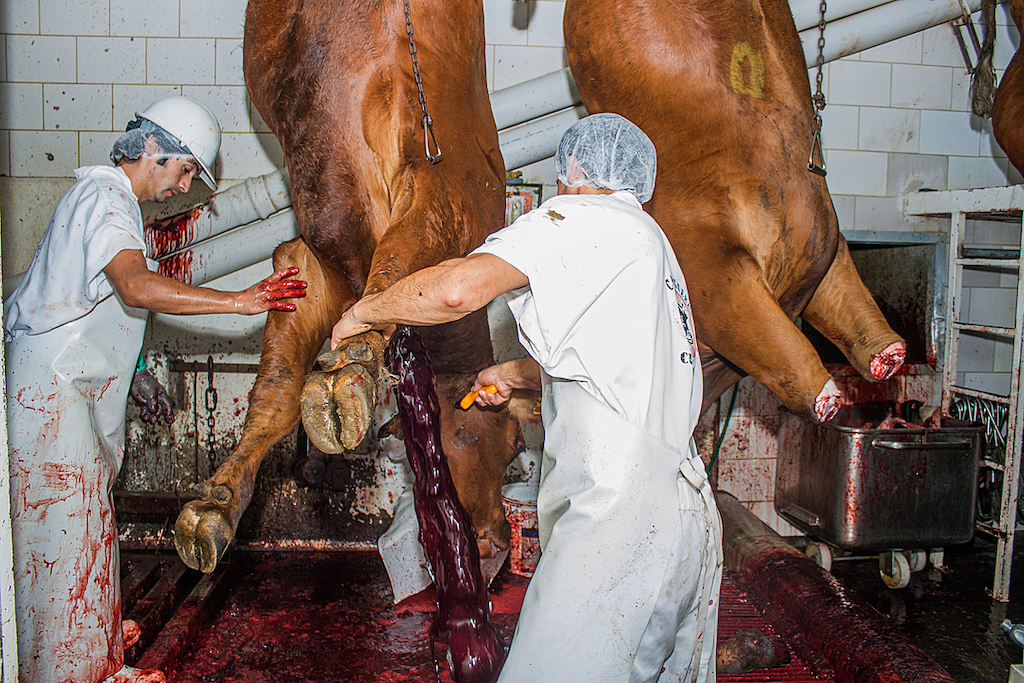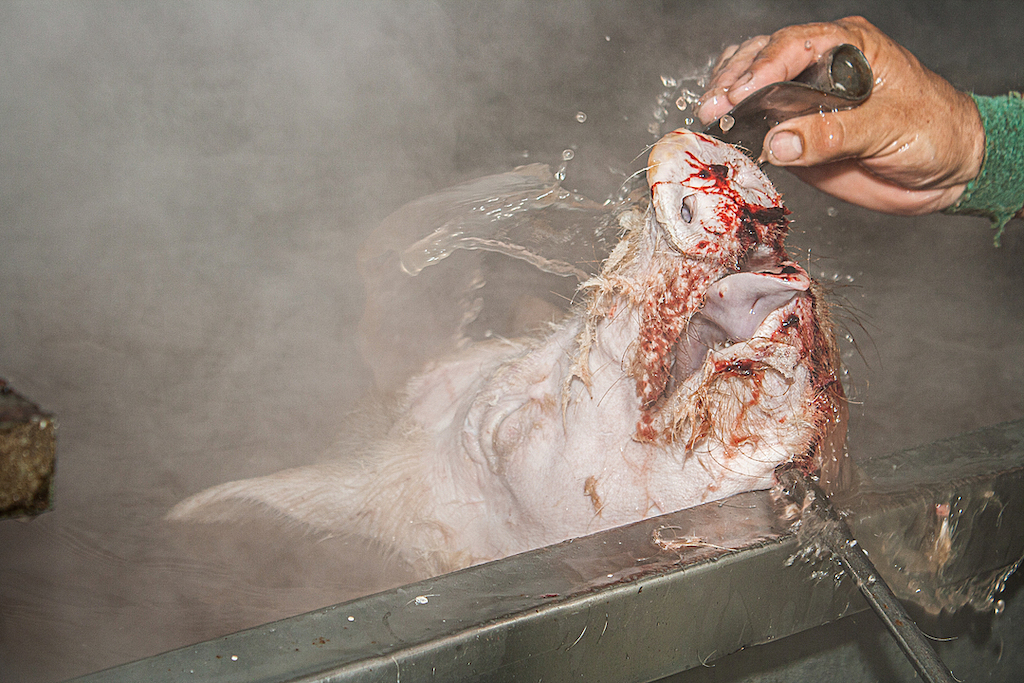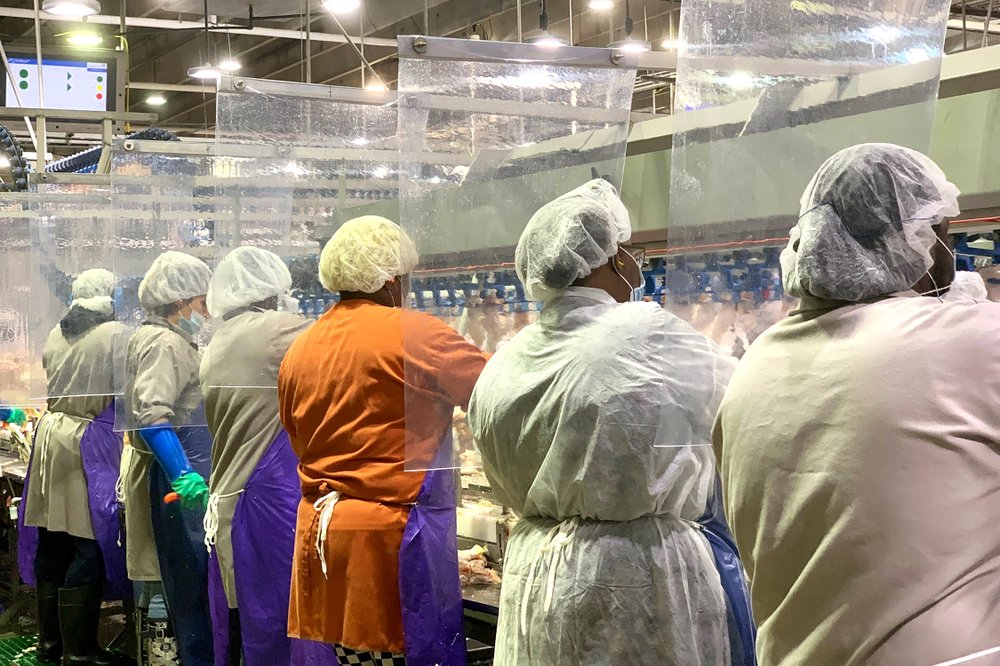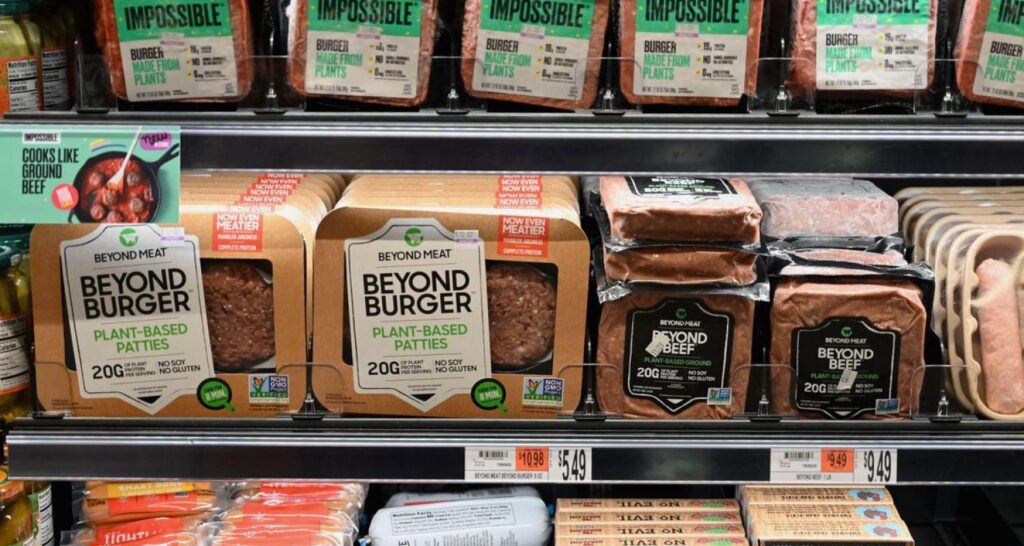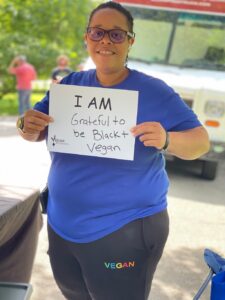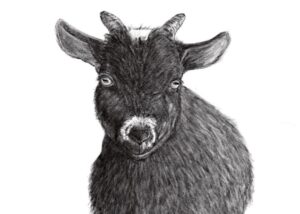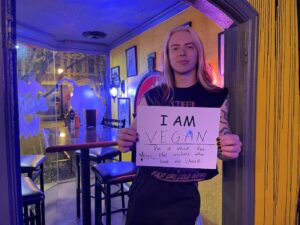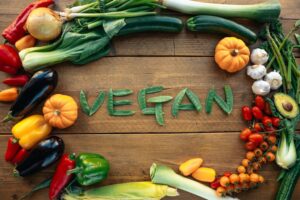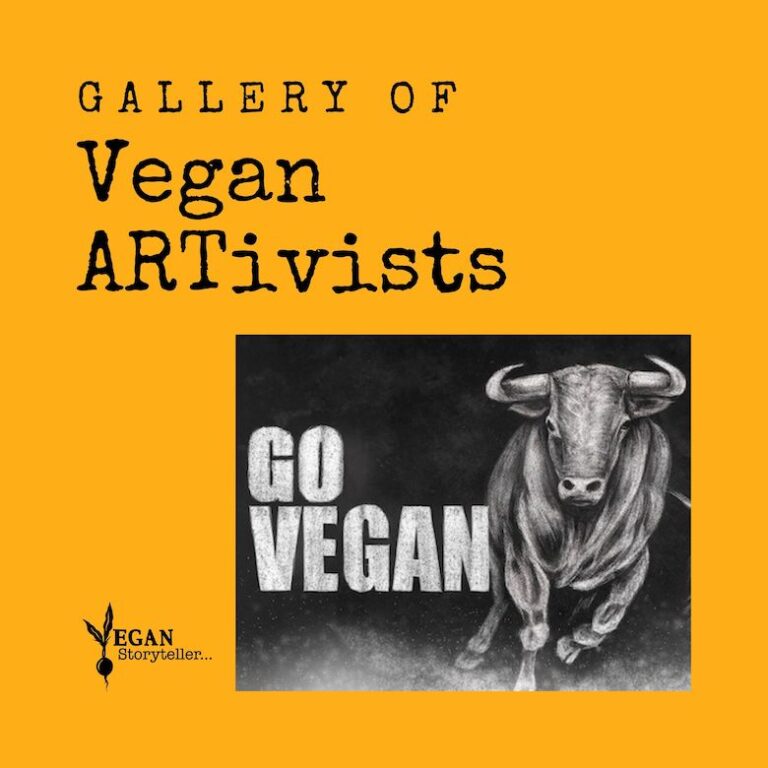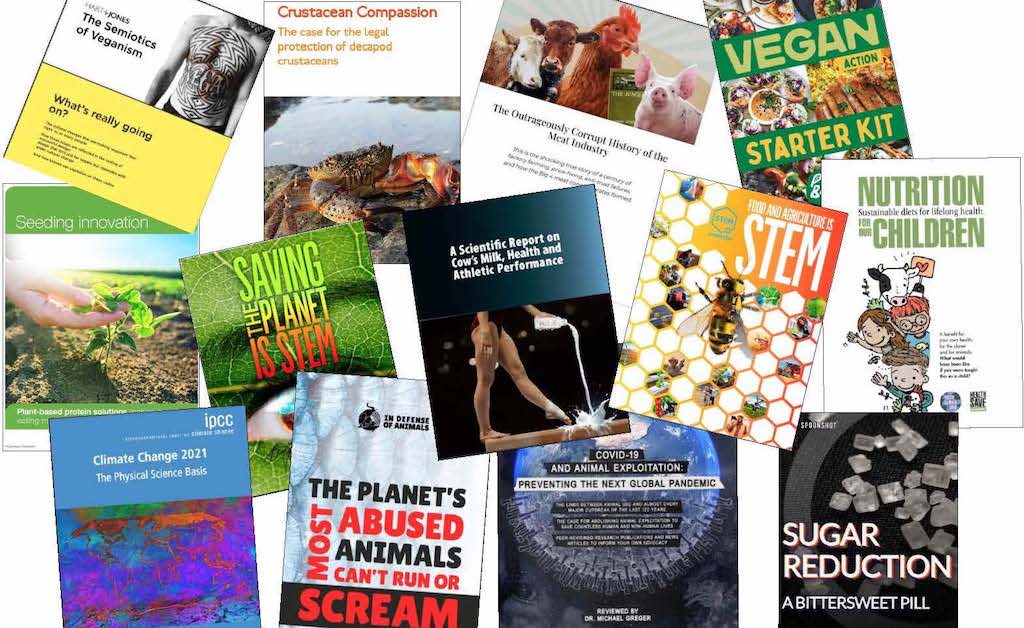The meat industry has long been a criminals’ paradise, and now the meat industry has its hooks in plant proteins. Four major conglomerates control up to 85% of the supply chains and operate with an iron grip, regardless of how many laws they break. The corporate giants have been convicted of committing crimes for many years, but they refuse to improve transparency within their operations because it would jeopardize profits.
With the vegan movement growing rapidly and alternative meat products increasingly in demand, the meat profiteers have set their sights on capturing additional market share by creating their own brands of vegan products. Know where your food comes from.
The meat industry is a dark and seedy world
Minnesota-based commodity trader Cargill, Arkansas-based chicken producer Tyson Foods, Brazil-based meatpacker JBS, and Missouri-based National Beef Packing Company (owned by Brazilian beef producer Marfrig Global Foods), have made the meat industry a dark and seedy world where corruption runs rampant.
The conglomerates have been able to gouge consumers by forming a close and monopolistic relationship with one another. These ties allow them to fix prices and violate antitrust laws. Banning together with herds of lawyers, they feel invincible.
Consumers eat their meat and investors buy their stocks regardless of their long rap sheets of bribery, labor violations, animal cruelty, environmental abuses, and other blatantly corrupt business practices.
It is very difficult for journalists to visit factory farms, slaughterhouses, and meat packing facilities in order to verify claims of horrific conditions and abuse. Whistleblowers and reporters and activists who go undercover are met with skepticism when they come forward with spectacular claims that cannot be substantiated by other sources.
In spite of the noble efforts to expose the truth, much of what occurs behind closed doors in board rooms and animal feedlots remains a secret. The companies continue to make record profits on the backs of workers, consumers, farmers, and ranchers. And all the while, their track records of animal abuse grow longer.
Monopolistic power of the meat industry impacts global food system
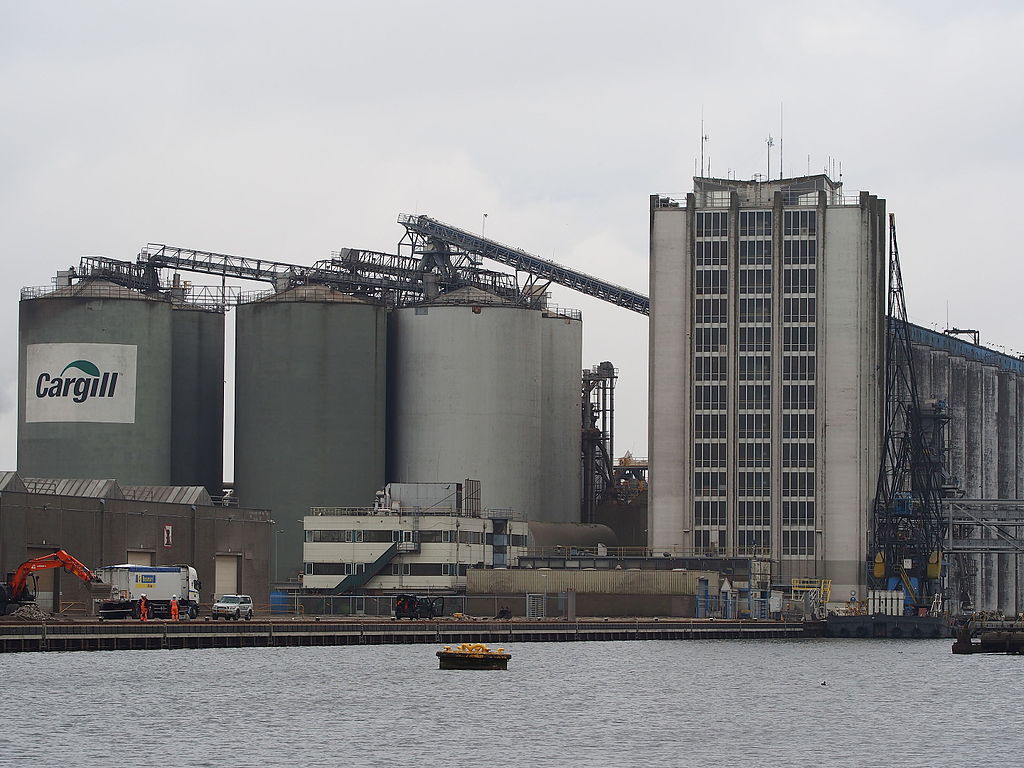
Minnesota-based commodity trader Cargill is one of the four major conglomerates that control up to 85% of the meat supply. Photo Creative Commons
Together, Cargill, Tyson, JBS, and National Beef Packing company slaughter about 85 percent of cattle that are butchered for human consumption, according to the most recent data (2018) available from the US Department of Agriculture. They now have monopolistic power and are able to operate without much government oversight.
We cannot trust how these businesses manage their power, which places us all in danger, especially as the meat industry has its hooks in plant proteins and is targeting the vegan community.
There was little knowledge of the inner workings of the meat industry until recently, when outlandish activities during the pandemic exposed their callous disregard for lives and laws. During the COVID crisis, the meat industry’s brazen behavior turned its unmatched power for nearly a century into an abrupt and embroiled legal battle with the US Department of Justice. Other factors also played a role.
US dependence on big meat processors
Three events took place in 2019, 2020, and 2021 that demonstrated the U.S.’ dependence on the four big meat processors:
- A fire forced Tyson’s Holcomb, Kansas, plant to close for four months on August 9, 2019, reducing U.S. beef production and eliminating a market for cattle sales.
- Slaughterhouses nationwide closed in 2020 to contain outbreaks of COVID-19 among workers.
- JBS detected a ransomware attack on its systems in May, 2021, which temporarily shut down all of its U.S. beef plants.
As a result of these game-changing developments, accusations of price-fixing and antitrust spread, prompting investigations and lawsuits. Bloggers who track agricultural policy, such as the Food and Environment Reporting Network’s Ag Insider, reported that beef prices rose at the start of the pandemic while ranchers’ prices dropped.
United Stockgrowers of America (The Ranchers Cattlemen Action Legal Fund) and other cattle ranchers filed a class action lawsuit alleging that the beef companies conspired to reduce the prices paid for cattle to inflate their profits. Tyson Foods reported a $3 billion profit in the fourth quarter of 2021, a 48% annual increase. Cargill’s profits in 2021 are the highest in 156 years.
Several lawsuits have been dismissed, while others remain pending. The meat industry has denied the allegations, as expected.
Lawmakers from both political parties have urged the US Department of Agriculture to increase enforcement of a 100-year-old federal act meant to protect farmers and ranchers from unfair trade practices. The lawmakers have also called on the Department of Justice to open an antitrust investigation.
As coronavirus continues to spread and supply issues persist, the meat industry is increasingly under scrutiny. On September 8, 2021, the Biden administration suggested pandemic profiteering might be responsible for the steep rise in the prices of beef, pork and poultry prices.
Cargill, Tyson, JBS, and National Beef Packing Company dominate our food system. In order to increase profits, they manipulate imports and exports, and supply and demand. In addition, they dictate contract terms, coerce feedlot owners if they do not comply, and limit competitive bidding in markets. From farm to fork, they control our food system.
Animal cruelty runs rampant in the meat industry
Pigs are tightly packed into a pen, forced into an electrocution area through the use of physical blows to their bodies, wetted down and electrocuted, then hung upside-down by their legs. Their throats are cut and they are left to bleed out until they die. The pigs are then put into a scalding tank to remove their hair. Finally, the pigs’ carcasses are cut in half and refrigerated until they are sold. Photo We Animals
The world’s largest meat company, JBS, has a long history of abusing animals. In 2009, undercover videos showed employees violently and sadistically torturing animals on the kill floor and while restraining them during slaughter. Lawsuits were filed after JBS failed to take action against the workers who committed these crimes.
JBS was charged in 2014 with federal felony charges of conspiracy to commit animal cruelty. In the following years, undercover videos would continue to show workers stomping on, beating, and beheading animals, gouging out their eyes, breaking their tails, bashing their skulls with metal pipes, and hurling calves and piglets across the room, slamming them into metal restrainers. A video shows workers torturing cows with sledgehammers at a slaughterhouse in Colorado in 2017. The video went viral and sparked consumer outrage.
Animal cruelty is not unique to JBS. Cargill, Tyson, and National Beef Packing Company are equally inhumane.
Tyson tortures animals
Tyson is the largest poultry producer in the U.S. and one of the most notorious animal abusers in history. Mercy For Animals maintains a website titled TysonTorturesAnimals.com to provide an overview of their investigations of animal cruelty at Tyson.
“After our many investigations exposing criminal animal abuse at Tyson, dozens of major food companies have announced comprehensive chicken welfare policies that will ban cruel practices. Tyson, however, has not publicly adopted these same standards and continues to torture billions of birds every year,” states the Mercy for Animals website.
Things are no better at Cargill or National Beef Packaging Company. Employees at both companies have been caught on camera shoving and kicking sick, crippled cattle, forcing them to stand using electric prods, forklifts, and water hoses. After the video was released, public outcry brought about one of the largest meat recalls in US history with 143.4 million pounds of meat recalled.
Labor and environmental violations are status quo in the meat industry
Cargill has also been in the spotlight for scandals related to food contamination, workplace injuries, and anticompetitive practices. Climate activists have targeted Cargill for destroying rainforests in Southeast Asian countries such as Indonesia.
Former Congressman Henry A. Waxman wrote in a blog for Mighty Earth, ”The people who have been sickened or died from eating contaminated Cargill meat, the child laborers who grow the cocoa Cargill sells for the world’s chocolate, the Midwesterners who drink water polluted by Cargill, the Indigenous People displaced by vast deforestation to make way for Cargill’s animal feed, and the ordinary consumers who’ve paid more to put food on the dinner table because of Cargill’s financial malfeasance — all have felt the impact of this agribusiness giant. Their lives are worse for having come into contact with Cargill.”
Cargill stands out with its abuses
Waxman said in 2020, “In my 40-year long career in Congress, I took on a range of companies that engaged in abusive practices. I have seen firsthand the harmful impact of businesses that do not bring their ethics with them to work. But Cargill stands out.”
See Cargill’s rap sheet at https://www.corp-research.org/cargill
When it comes to corruption, JBS gives Cargill a run for its money. The Bureau of Investigative Journalism wrote in a two-part investigation in 2019 that JBS and its network of subsidiaries have been linked to allegations of high-level corruption, modern-day slavery practices, illegal deforestation, animal welfare violations, and serious hygiene violations.
JBS’ holding company paid one of the largest fines in corporate history — $3.2 billion — after admitting to bribing hundreds of politicians in order to obtain government certificates for their products without them being inspected.
The Bureau of Investigative Journalism states that dirty meat is very much a part of how JBS conducts business. The company’s practices include slaughtering cows with cancerous tumors and selling the meat to consumers, using horse meat in beef products, exporting salmonella-infected chickens, and using banned antibiotics and growth hormones in its meat products.
Tyson is a publicly traded corporation with annual sales of more than $29 billion. It operates 123 food processing plants worldwide. As a result of its criminal acts of price fixing, animal abuse and pollution, as well as worker rights and safety violations, the company has eroded consumer trust.
The US Department of Labor sued Tyson for violating child labor laws, and more than 17,000 Tyson employees sued the company (and won the settlement) for violating the Fair Labor Standards Act. Tyson was fined $24 million for violating the Clean Air Act in 2017.
Tyson’s plants in Arkansas reported nearly 3,000 cases of COVID between May 19, 2020, and April 8, 2021. That’s nearly one-third of the entire state’s workplace cases.
While health officials have repeatedly warned that people should keep six feet apart to help prevent COVID from spreading, workers stand shoulder-to-shoulder on meat and poultry production lines. At least 59,000 workers contracted COVID at the five biggest meat packing companies in the US: Tyson Foods, JBS, Cargill, National Beef Packing Company, and Smithfield Foods. More than half of the total infections — nearly 29,500 — were tied to Tyson. At least 269 workers across the five companies died.
According to a government report published after an investigation, the top meatpackers failed to protect workers, allowing the virus to spread rapidly in the close confines of processing and packing plants.
“Instead of addressing the clear indications that workers were contracting the coronavirus at alarming rates due to conditions in meatpacking facilities, meatpacking companies prioritized profits and production over worker safety,” lawmakers said in the report.

Animal cruelty runs rampant in companies owned by Brazil-based meatpacker JBS. The plant-based protein start-up Planterra Foods is a JBS investment company.
The meat industry has its hooks in plant proteins: don't be a pawn in their repugnant game
While vegans do not consume meat, they may be complicit in the meat industry’s crimes through their consumer purchases. Smithfield and Perdue have introduced meat alternatives.
Tyson was an early investor in Beyond Meat before selling its shares worth $79 million to shift toward its own plant-based offerings. Tyson’s alternative meat brand Raised & Rooted offers burgers that are made from a blend of meat and plants. It also owns the Jimmy Dean brand, which includes “plant-based” sausage patties that are made with egg whites.
Perdue is selling blended nuggets, mixing poultry with cauliflower and chickpeas. Nestle, the largest food company in the world and most known for its milk products, released the Awesome Burger in September to compete in the plant-based market. Plant-based protein start-up Planterra Foods is a JBS investment company.
Meat companies target vegans for revenue
Buyers beware! We know the meat industry has its hooks in plant proteins. Always check labels for ingredients on alternative meat products, and know if they are producing alternative meats in the same facilities where they are butchering animals or packaging meat. Above all, follow the money. Know who is producing the vegan options you buy. Don’t support the criminals by buying their products. Buy from cruelty-free companies.
“There is a growing demand out there. We’d be foolish not to pay attention,” said John Pauley, the chief commercial officer for Smithfield, one of the largest pork producers in the country.
Justin Whitmore, Tyson’s executive vice president for alternative protein, said, “We’ll move with the consumer, and we have the capacity that helps us move quickly.”
I am suspicious of this recent development of the meat industry entering the vegan market. Corporate giants are too easily able to co-opt the vegan movement by swallowing startups. It’s been done before in other markets. For years, oil companies bought clean-energy startups and essentially shut them down.
Using plant-based meat products to draw attention away from their corrupt business practices is also a way for meat companies to greenwash their crimes. Basically, meat and food industrial giants want to do one thing, and do it well: make money.
In the words of Smithfield’s John Pauley, “We’re a meat company, first and foremost. We’re not going to apologize for that.”
Tyson’s spokesperson Susan Wassel, said, “Right now, it’s really about the business opportunity.”
Meat industry profits from vegans and others who are switching to alternative meat proteins
Murderous, soul-destroying meat companies are profiting from the vegan movement. Tyson was an early investor in Beyond Meat before selling its shares worth $79 million to shift toward its own plant-based offerings with its brand called Raised & Rooted.
Vegans are generally aware of the horrors of the meat industry, but non-vegans rarely follow the undercover investigations into animal cruelty and tend to be unaware of its inner workings. People go to the grocery store and buy meat that is neatly packaged without considering how those body parts ended up in the refrigerated section.
Each of us has a responsibility to learn about the underpinnings of the meat industry, and to share what we know with others. By failing to pay attention to crime and corruption, we have enabled JBS to achieve revenues of $50 billion by torturing and abusing animals, bribing politicians, and violating environmental, labor, and safety laws.
Because of our complacency, Cargill, Tyson, and the National Beef Packaging Company have amassed fortunes, wielded enormous power over consumers, and wreaked havoc on animals, people, and the environment. And now the unscrupulous meat industry has its hooks in plant proteins. Take note.
Murderous, soul-destroying meat companies see vegans as another revenue source. They are profiting from the plant-based movement. Don’t let yourself become a pawn in their repugnant game. Buy alternative meat products from ethical companies that don’t have a history of animal abuse or corruption.
The Outrageously Corrupt History of the Meat Industry is the shocking true story of a century of factory farming, price-fixing, anti-trust failures, and how the Big 4 meat conglomerates formed. Written by Sara Ventiera for LIVEKINDLY.
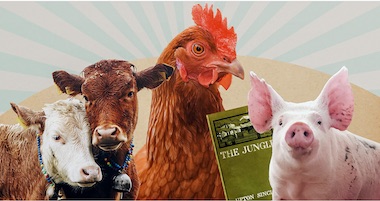
Read next The Outrageously Corrupt History of the Meat Industry
